第63章 BOHEMIAN DAYS IN SAN FRANCISCO(4)
One morning as I was going out to my very early breakfast at a cheap Italian cafe on Long Wharf, I was surprised to find him also descending the staircase. He was scrupulously dressed even at that early hour, but I was struck by the fact that he was all in black, and his slight figure, buttoned to the throat in a tightly fitting frock coat, gave, I fancied, a singular melancholy to his pale Southern face. Nevertheless, he greeted me with more than his usual serene cordiality, and I remembered that he looked up with a half-puzzled, half-amused expression at the rosy morning sky as he walked a few steps with me down the deserted street. I could not help saying that I was astonished to see him up so early, and he admitted that it was a break in his usual habits, but added with a smiling significance I afterwards remembered that it was "an even chance if he did it again." As we neared the street corner a man in a buggy drove up impatiently. In spite of the driver's evident haste, my handsome acquaintance got in leisurely, and, lifting his glossy hat to me with a pleasant smile, was driven away. I have a very lasting recollection of his face and figure as the buggy disappeared down the empty street. I never saw him again. It was not until a week later that I knew that an hour after he left me that morning he was lying dead in a little hollow behind the Mission Dolores--shot through the heart in a duel for which he had risen so early.
I recall another incident of that period, equally characteristic, but happily less tragic in sequel. I was in the restaurant one morning talking to my cousin when a man entered hastily and said something to him in a hurried whisper. My cousin contracted his eyebrows and uttered a suppressed oath. Then with a gesture of warning to the man he crossed the room quietly to a table where a regular habitue of the restaurant was lazily finishing his breakfast. A large silver coffee-pot with a stiff wooden handle stood on the table before him. My cousin leaned over the guest familiarly and apparently made some hospitable inquiry as to his wants, with his hand resting lightly on the coffee-pot handle.
Then--possibly because, my curiosity having been excited, I was watching him more intently than the others--I saw what probably no one else saw--that he deliberately upset the coffee-pot and its contents over the guest's shirt and waistcoat. As the victim sprang up with an exclamation, my cousin overwhelmed him with apologies for his carelessness, and, with protestations of sorrow for the accident, actually insisted upon dragging the man upstairs into his own private room, where he furnished him with a shirt and waistcoat of his own. The side door had scarcely closed upon them, and I was still lost in wonder at what I had seen, when a man entered from the street. He was one of the desperate set I have already spoken of, and thoroughly well known to those present. He cast a glance around the room, nodded to one or two of the guests, and then walked to a side table and took up a newspaper. I was conscious at once that a singular constraint had come over the other guests--a nervous awkwardness that at last seemed to make itself known to the man himself, who, after an affected yawn or two, laid down the paper and walked out.
"That was a mighty close call," said one of the guests with a sigh of relief.
"You bet! And that coffee-pot spill was the luckiest kind of accident for Peters," returned another.
"For both," added the first speaker, "for Peters was armed too, and would have seen him come in!"
A word or two explained all. Peters and the last comer had quarreled a day or two before, and had separated with the intention to "shoot on sight," that is, wherever they met,--a form of duel common to those days. The accidental meeting in the restaurant would have been the occasion, with the usual sanguinary consequence, but for the word of warning given to my cousin by a passer-by who knew that Peters' antagonist was coming to the restaurant to look at the papers. Had my cousin repeated the warning to Peters himself he would only have prepared him for the conflict--which he would not have shirked--and so precipitated the affray.
The ruse of upsetting the coffee-pot, which everybody but myself thought an accident, was to get him out of the room before the other entered. I was too young then to venture to intrude upon my cousin's secrets, but two or three years afterwards I taxed him with the trick and he admitted it regretfully. I believe that a strict interpretation of the "code" would have condemned his act as unsportsmanlike, if not UNFAIR!